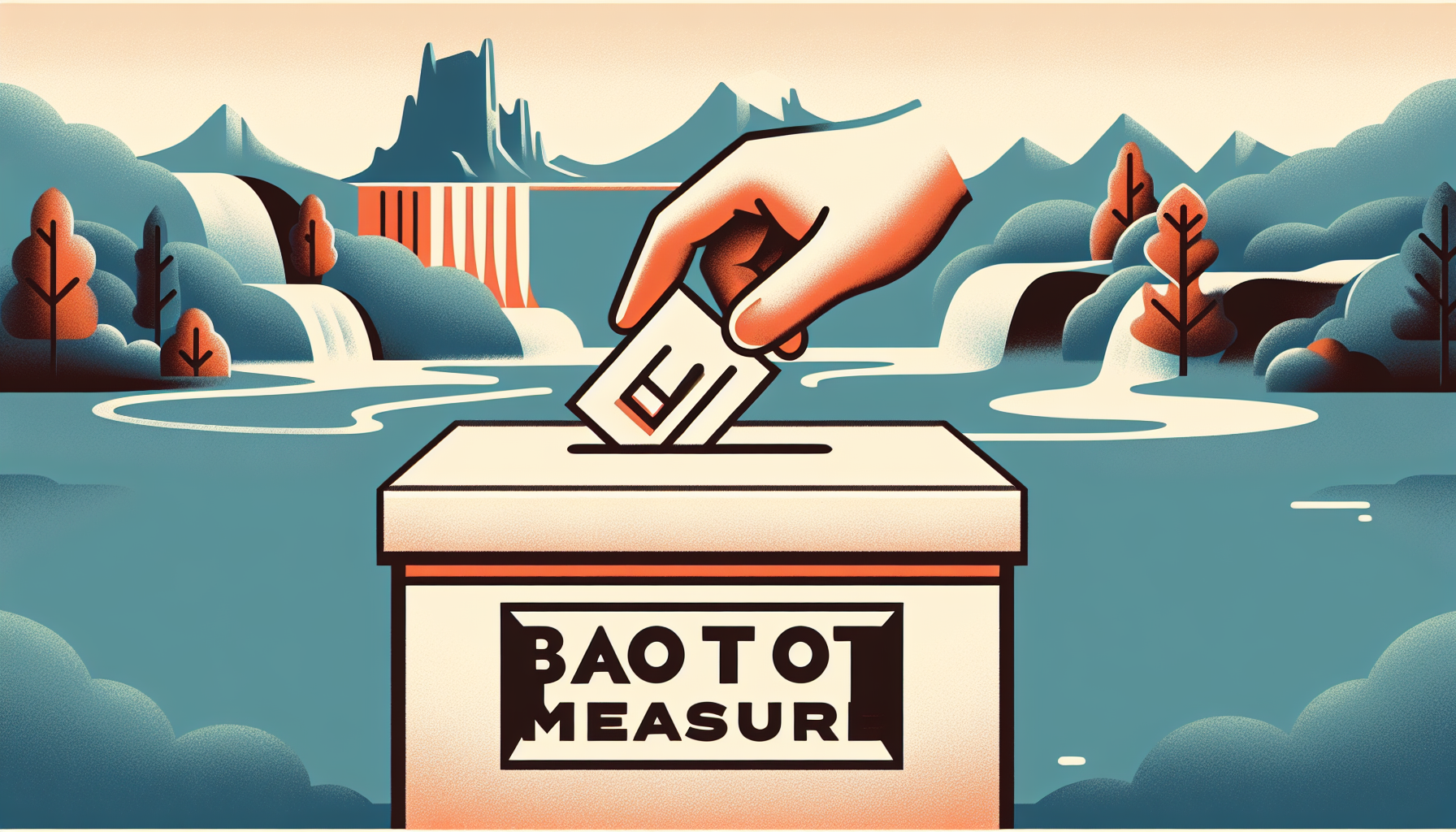On the cusp of an important electoral decision, voters in Arkansas are set to cast their ballots on Issue 2, a measure related to the establishment and operation of casinos in the state. This decision comes after a prolonged period of debate over the economic and social implications of expanding gambling within Arkansas.
The Importance of Issue 2
Issue 2 represents a pivotal moment for the local economy and the state’s legislative stance on gambling. The proposal aims to permit the construction and operation of new casino establishments, potentially reshaping the entertainment landscape of Arkansas.
The ballot measure arises in a complex context. On one hand, advocates for Issue 2 argue that allowing more casinos will lead to significant economic benefits, including job creation and increased tax revenue. These potential advantages are seen as vital for boosting local economies, especially in regions that have been struggling economically.
What Does Issue 2 Entail?
- Casino Licensing: If approved, Issue 2 would grant licenses for new casino operations, allowing for the expansion of the gambling industry in Arkansas.
- Revenue Allocation: A portion of the revenue generated from these casinos would be earmarked for state development projects, including education and infrastructure improvements.
- Regulatory Framework: The measure includes detailed plans for regulating the operations of these new casinos to ensure compliance and mitigate any negative social impacts.
The proposal is being closely watched not only by Arkansans but also by external stakeholders who understand its potential ripple effects on the region’s economy.
Advocates for Expansion
Supporters of Issue 2 argue that legalizing more casinos in Arkansas is a pragmatic approach to harnessing an untapped revenue source. For communities facing budget shortfalls, the prospect of casino revenue is an attractive solution to bolster public services without raising taxes on residents.
According to American Gaming Association, the gambling industry has been instrumental in generating significant economic activity in states where it is well-regulated. Advocates believe that with appropriate oversight, Arkansas could replicate these successes, contributing to public sectors, such as health care and education.
Concerns and Opposition
Despite these potential benefits, Issue 2 faces considerable opposition. Critics frequently cite social and ethical concerns associated with expanding gambling operations. These concerns highlight the potential increase in gambling addiction and its associated social costs, including financial hardships and mental health issues for affected individuals and families.
Religious groups and conservative organizations are particularly vocal in their opposition to the measure, aligning themselves with broader anti-gambling sentiments. They argue that the introduction of more casinos will not only exacerbate social issues but also detract from the state’s cultural identity. Furthermore, studies have indicated that the introduction of casinos can lead to increased crime rates in some communities, adding another layer of concern for residents.
Balancing Economic Gains and Social Concerns
The challenge for Arkansas voters is to weigh these economic opportunities against the potential for negative social impacts. Effective regulation and allocation of resources towards social programs can help mitigate these risks. However, these measures require commitment and follow-through from policymakers.
The Role of Existing Casinos
It is worth noting that Arkansas already hosts several casino operations, which have provided a framework for assessing this potential expansion. Historically, these establishments have contributed positively to local economies, albeit with mixed social outcomes. Understanding the experiences of these existing casinos could provide valuable insights for voters as they consider their decision.
Potential Impact on Arkansas
Approving Issue 2 could set Arkansas on a path similar to other states that have embraced casino gambling as a fiscal strategy. By increasing tourism and creating jobs, the state stands to benefit from a more diversified economy less reliant on traditional industries.
However, the measure requires careful implementation. Legislation must ensure that potential negative impacts are addressed swiftly and effectively, taking into account the concerns raised by opposition groups. This includes enhanced support for gambling addiction programs and community development initiatives to provide a safety net for vulnerable populations.
What’s Next for Voters?
The countdown to the election and the decision on Issue 2 is well underway, with advocacy groups on both sides ramping up efforts to sway public opinion. As voters educate themselves on the details and implications of the measure, it is crucial for the dialogue surrounding Issue 2 to remain balanced and informative.
As the clock ticks down to the decisive vote, the stakes are high for Arkansas. Whether Issue 2 passes or fails, the outcome is bound to be a significant chapter in the state’s legislative and economic history. The decision will reflect not only the economic aspirations of the community but also its values and vision for the future.
Conclusion
As Arkansas stands at this crossroads, voters are faced with a decision that requires careful consideration of both economic opportunities and social responsibilities. The debate over Issue 2 is a testament to the complexities inherent in modern governance, where the economic advantages of casino expansion must be delicately balanced against the potential for societal disruption.
Ultimately, the decision rests in the hands of Arkansans. The outcome will determine the trajectory of the state’s economic and social landscape, influencing not just economic policy but also the cultural fabric of Arkansas for years to come. As the conversation continues, voters are encouraged to consider all facets of this critical issue and cast their ballots with a comprehensive understanding of the potential benefits and challenges.

